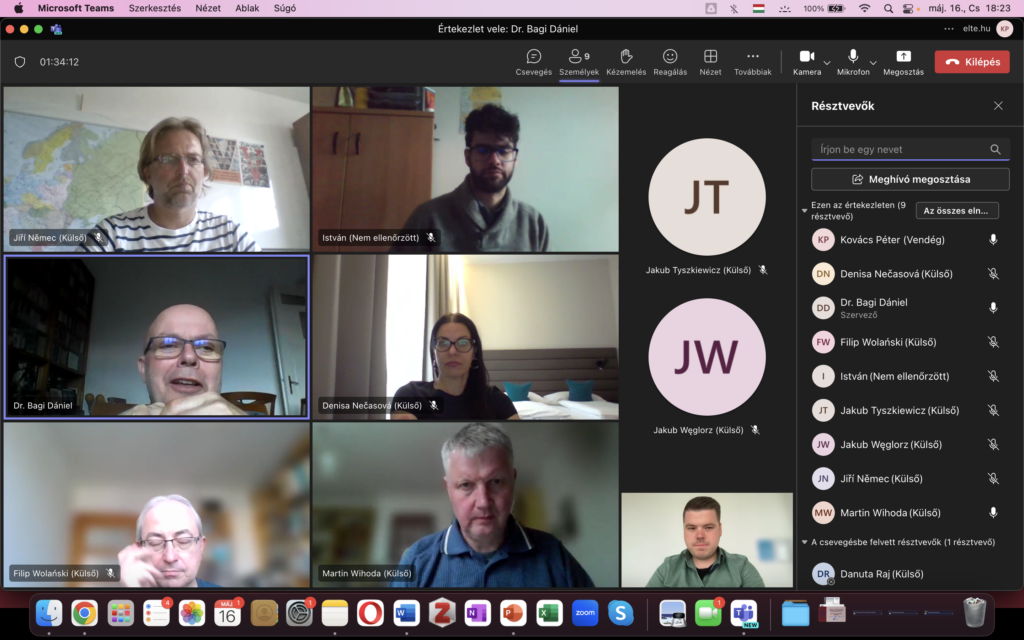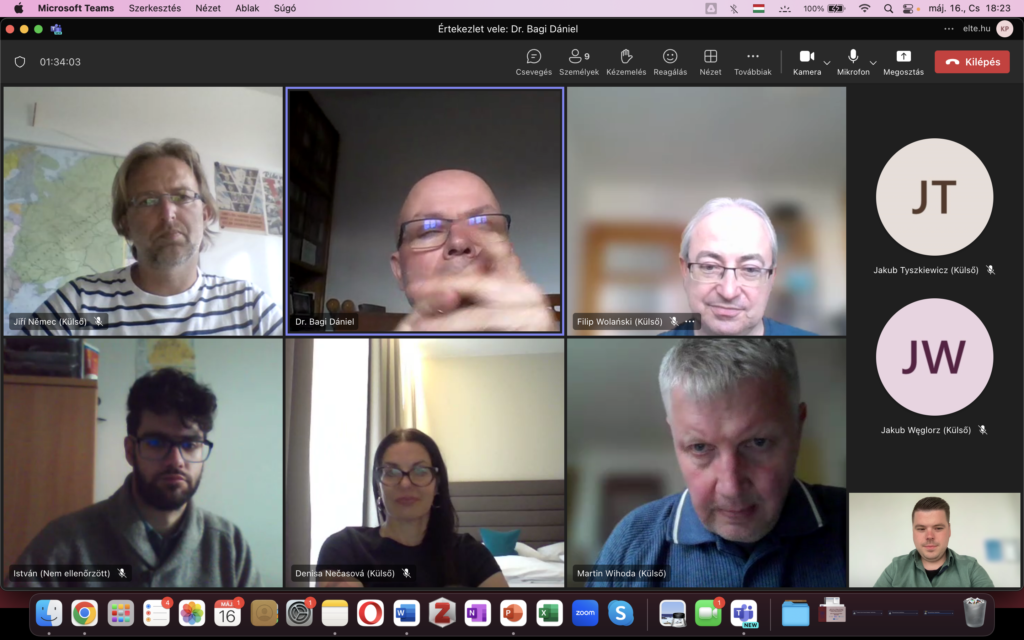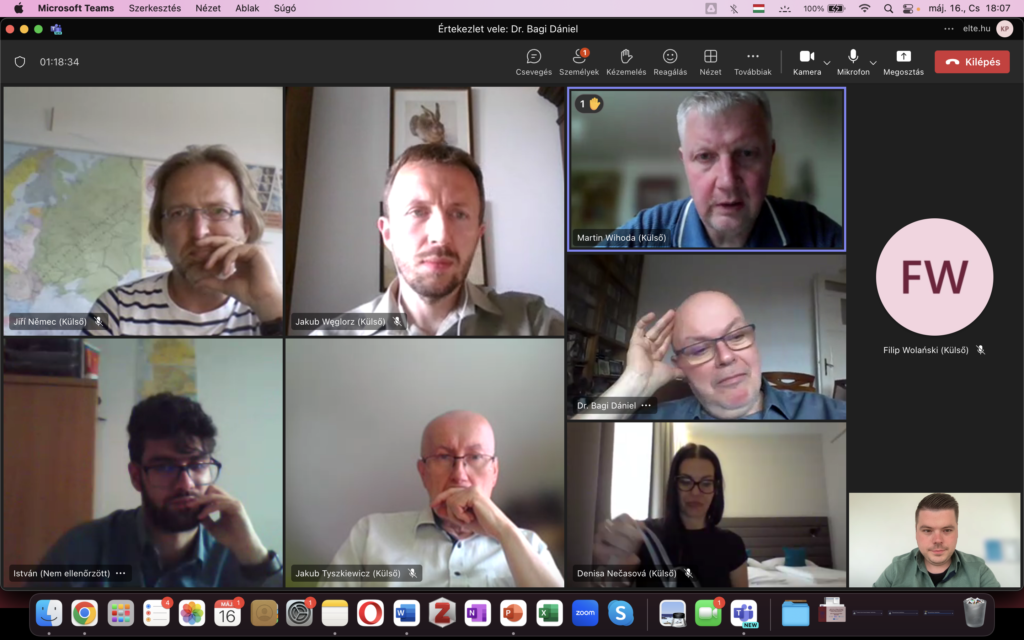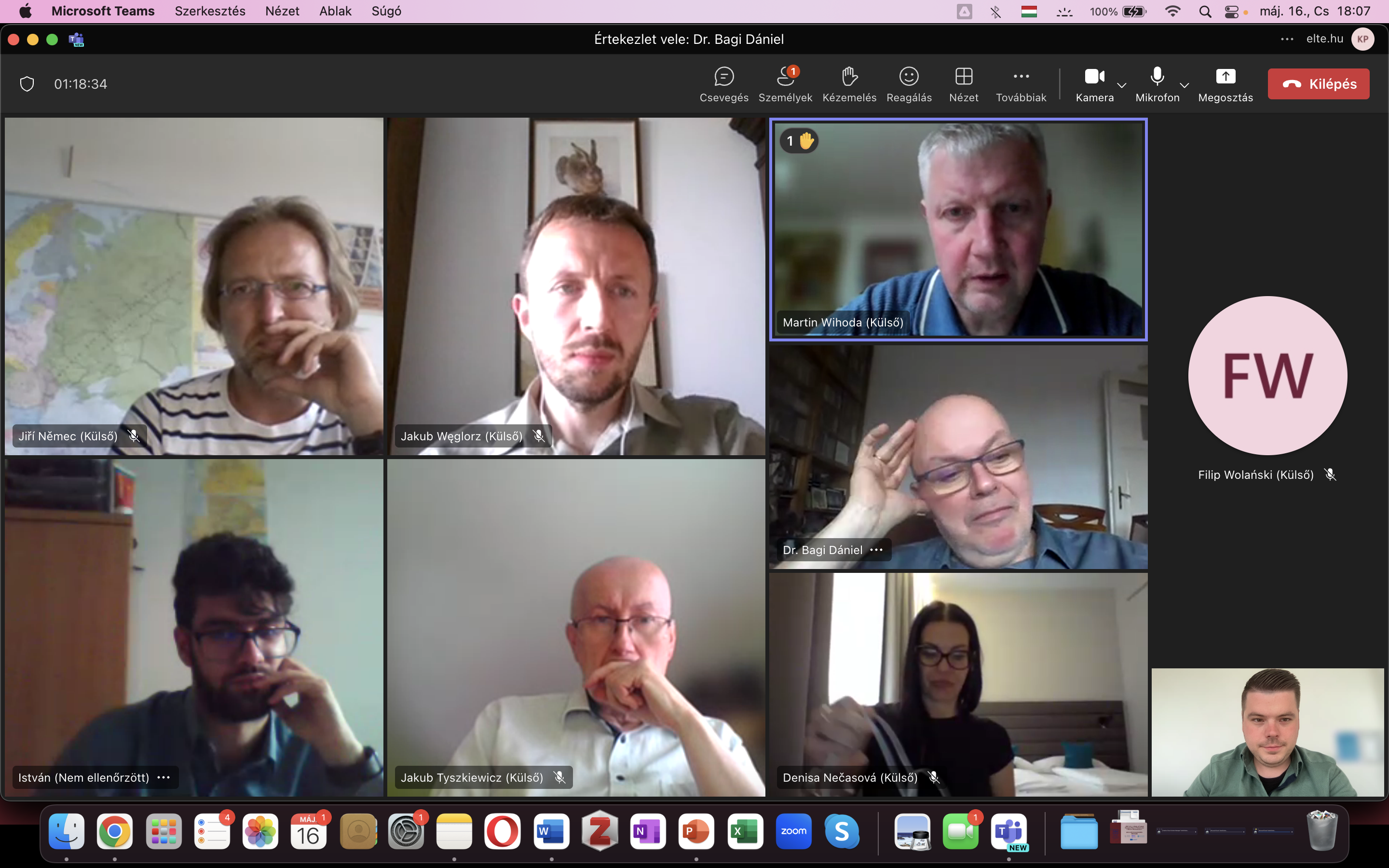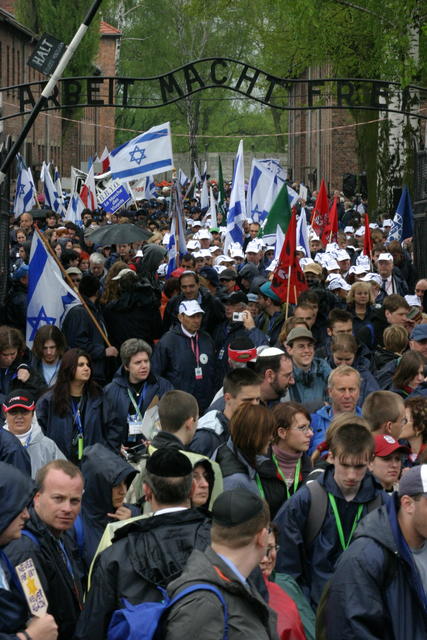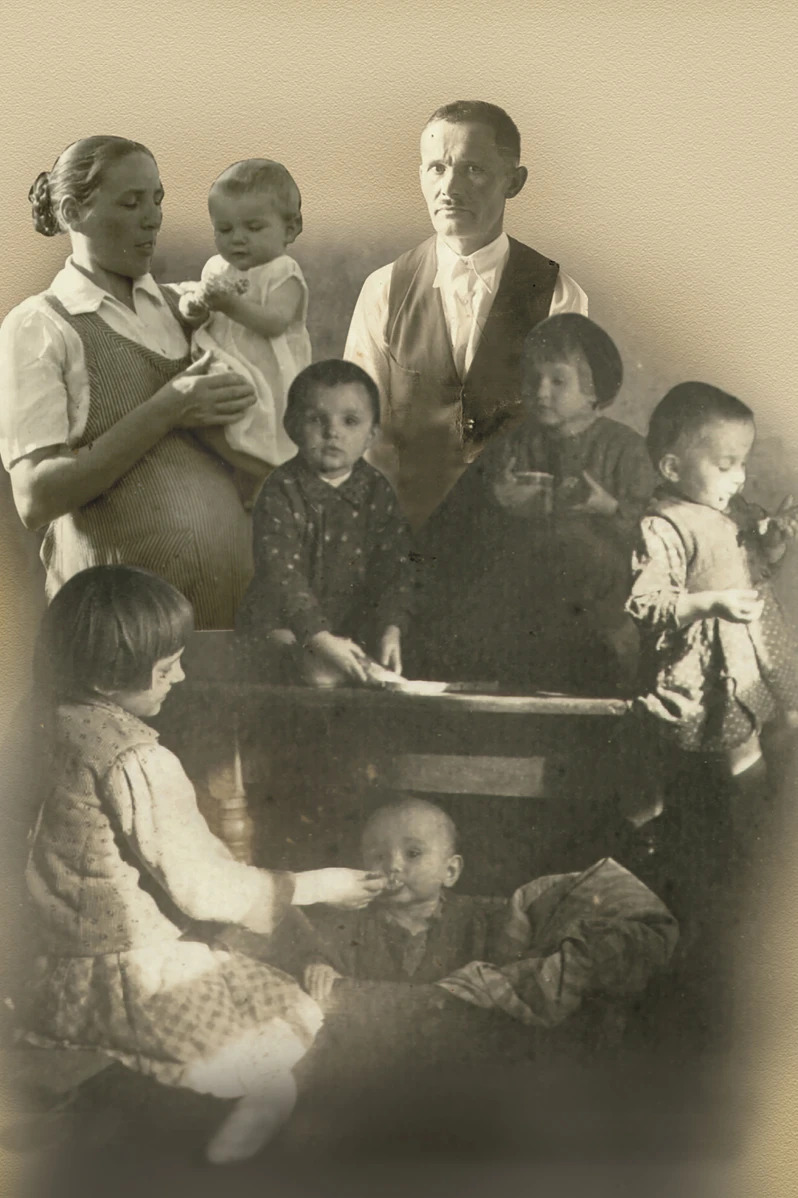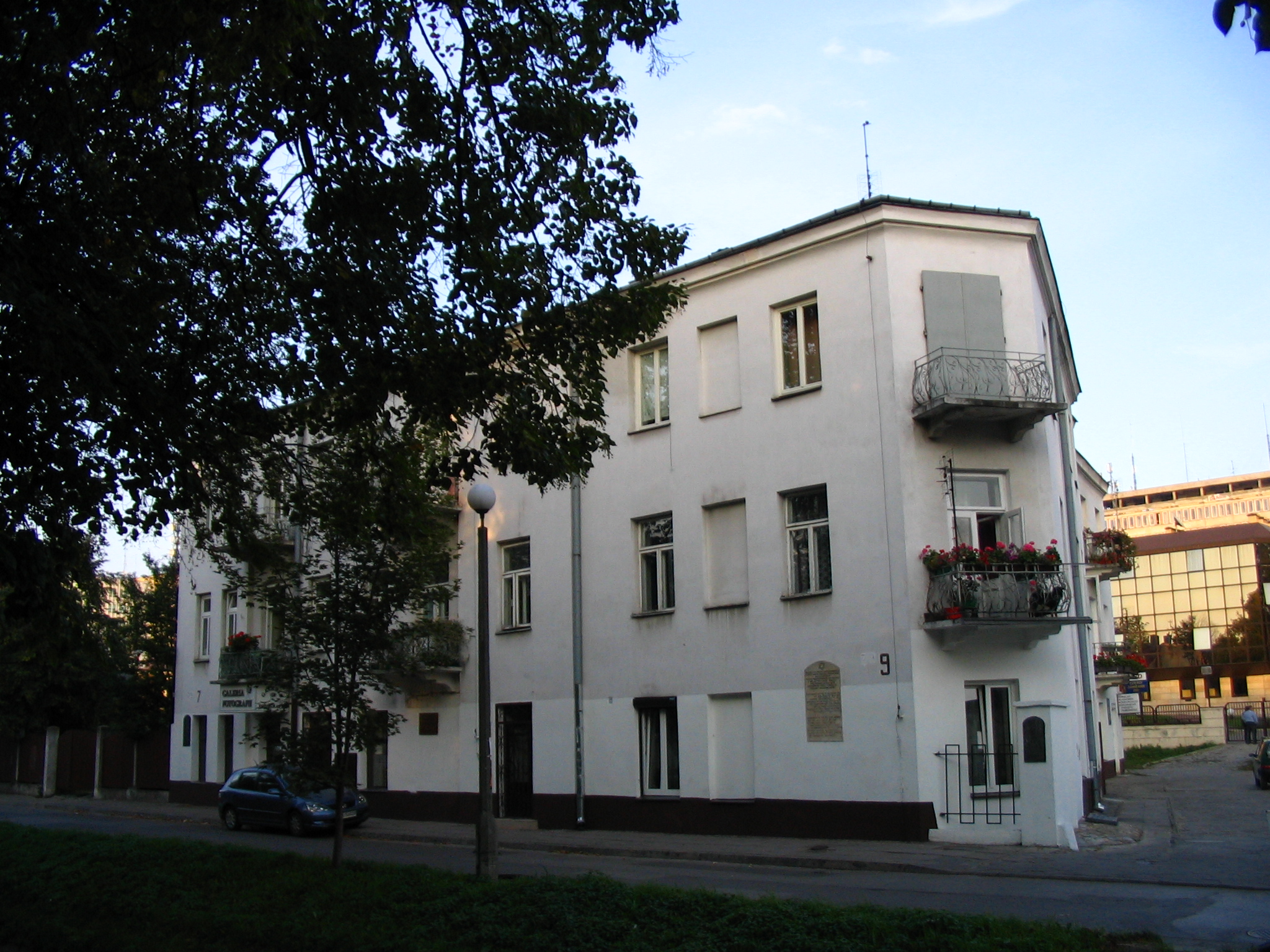On May 16, 2024, the RECALL project team gathered virtually for a crucial seminar focused on presenting the first version of the project’s thematic map, discussing progress on data collection, and planning the next steps. This seminar marked a significant milestone in the project, as the team reviewed the progress made on visualizing Central European memory sites and refining the project’s technical and managerial framework.
The seminar began with an exciting presentation by the IT team, showcasing the initial version of the thematic map. Key features of the map included:
- Split screen functionality for comparing multiple memory sites.
- Interactive layers that allow users to toggle between different historical periods.
- Data visualization tools that provide rich, detailed insights into historical facts and figures.
The team collected valuable feedback on the user interface, and several suggestions were made to improve the clarity and accessibility of the map, ensuring it serves both academic and public audiences effectively. Each project partner shared updates on their research, presenting detailed findings on the historical memory sites assigned to them. The teams have focused on three key elements for each site:
- Facts: Key historical events tied to the site.
- Figures: Important historical figures associated with the site.
- Descriptions: Contextual narratives to explain the significance of the site.
A new cross-review process was introduced, where teams will review each other’s research to ensure both academic rigor and linguistic accuracy. This system will help maintain consistency across all topics before they are integrated into the thematic map.
The seminar also addressed several technical and managerial matters, including:
- Finalizing the technical specifications for uploading data into the catalogue and thematic maps.
- Logistical planning for the upcoming Wroclaw study visit, including travel arrangements and the seminar agenda.
Key discussions and decisions:
- The first version of the thematic map was accepted, with minor revisions suggested to enhance its visual layout and functionality.
- Teams agreed to complete their detailed research on the three assigned historical sites using the cross-review system before the next meeting.
- Further discussions addressed technical challenges, such as integrating multiple layers of historical data. Solutions were proposed to ensure that the map remains both informative and user-friendly.
This seminar marked a pivotal step in advancing the RECALL project’s thematic map, with the first version now ready for refinement. The feedback gathered will help guide the next phase of development, ensuring the final version of the map is both academically rigorous and accessible to a broader audience.
The team is now preparing for the next major milestone: the Wroclaw study visit. Stay tuned for updates on how the project continues to evolve!
